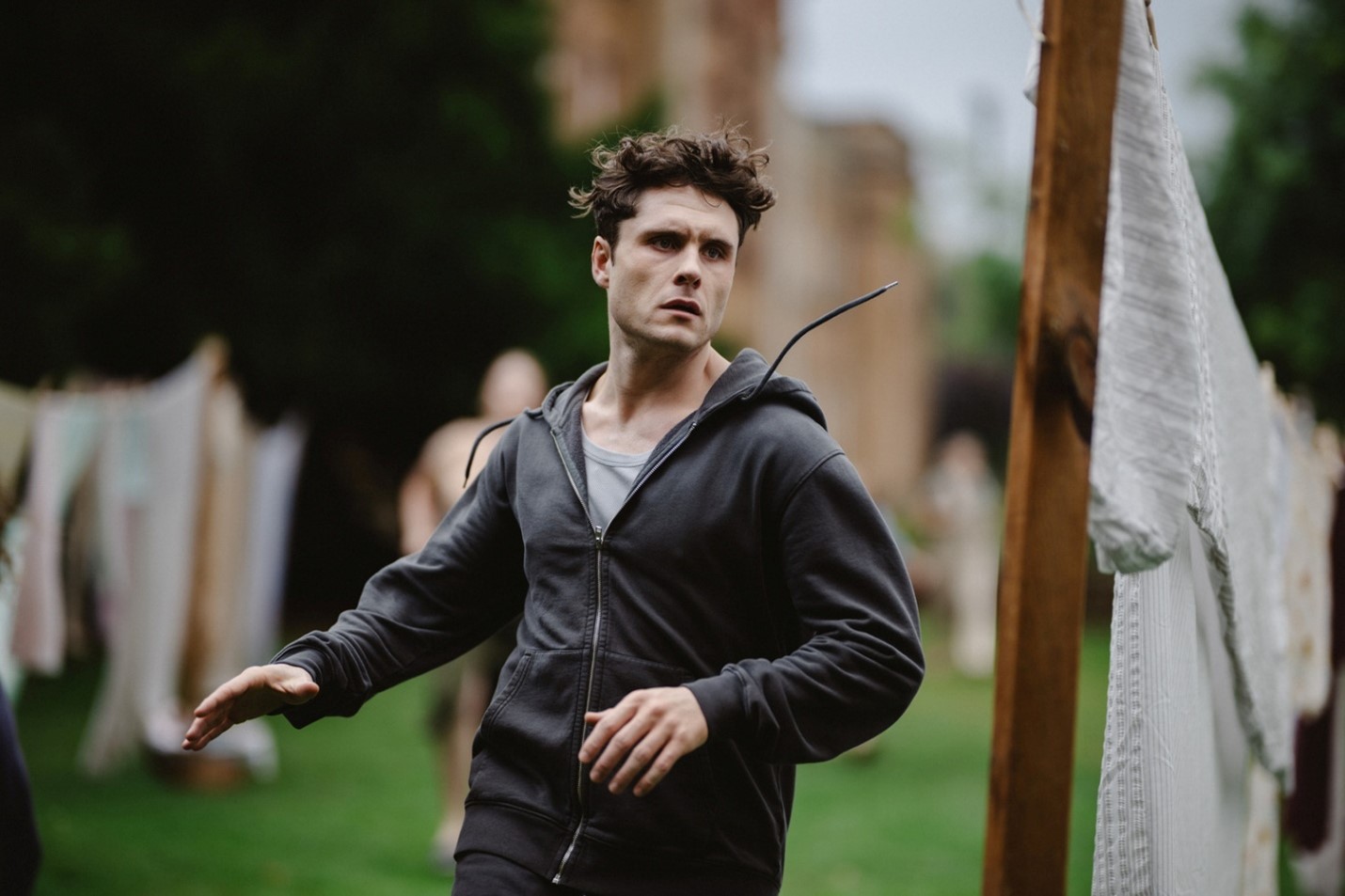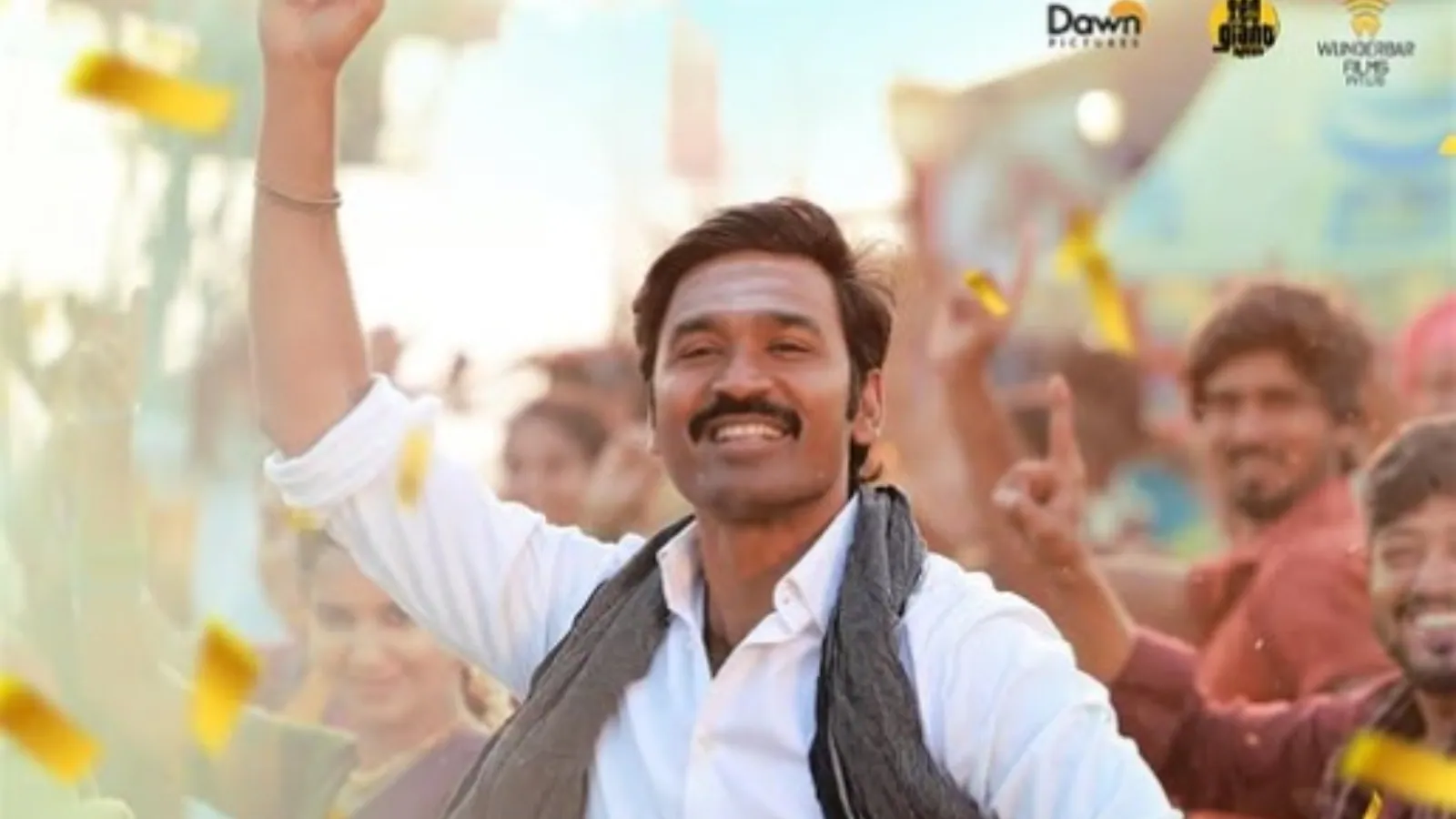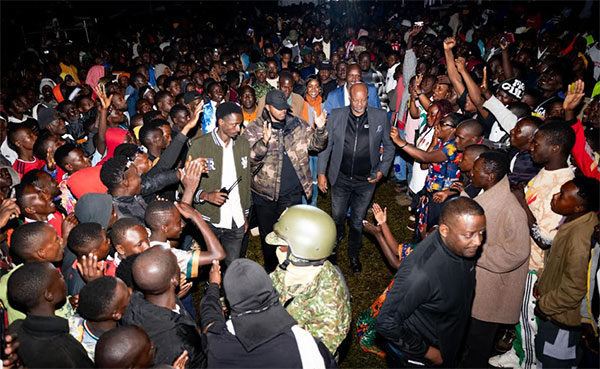Dispatch from TIFF 2025: Complicated choices in “Retreat”, “To the Victory!”, and “It Would Be Night in Caracas”
By Andrew Kendall
Copyright stabroeknews

During a fraught moment in “Retreat”, a thriller set at a deaf commune that recently had its World Premiere at the festival, a character passionately defends herself against criticism: “Who really has a choice? From the moment we’re born decisions are made for us by those who don’t understand us.” It’s a line you can tell the filmmakers have put much thought into. The query looms over film’s final act. But, even outside of “Retreat”, the words linger. I find them just as germane to the complexities of making survival choices for the characters in two other films playing at Toronto this year.
In the metatextual “To the Victory!”, Ukrainian filmmaker Valentyn Vasyanovych considers a speculative future where the war has ended but the scars of malaise still linger for filmmaker Roman and his family. Meanwhile, during a developing war in 2017 Venezuela in “It Would Be Nights in Caracas”, a woman finds herself forced to make difficult decisions to survive while making an escape from the city’s danger. As the characters in these different films seek to find better ways of living, their vulnerability to the choices made looms. There’s an intellectual sharpness to the themes raised in the films, even when the actual films might waver.
“Retreat” opens with Eva (Anne Zander) a Berlin woman who arrives at Chilmark, a secluded deaf community in the English countryside, hoping to reframe her identity and cast off the shadows of her old life. She is immediately taken with Matt (James Joseph Boyle) who has lived on the estate since he was a child and can remember no other life or no encounters with hearing people. As Eva begins to shed her doubts about the isolationist aspects of the community, Matt begins to question the effects of that same isolation. As we delve into the roots of Chilmark and learn of the choices the house mothers Mia and Tracy (Sophie Stone and Anna) have taken to secure the community, the film teases us: why does something that seems idyllic create such feelings of restlessness?
Early sections of “Retreat” move with an excited air of a film immediately conscious of the moods it’s working to evoke, and the tones it’s working to deploy. Evans, who recommended various films to his cast members for character preparation and excitedly talks of the works that have influenced, is clearly a lover of film. There’s enough attention, especially in the first half, to blocking and motif that feels meaningful and intentional. Composer Adam Janota Bzowski is doing a lot of emotional heavy lifting, immediately signalling something amiss in the house with his foreboding score. “Retreat” moves with the shape of a thriller, as we keep peeling away layers and layers that disconcert.
Evans, a deaf filmmaker, has been working on this idea for more than a decade, and “Retreat” is immediately compelling as a film so sharply immersed in deaf culture. Deaf performers play deaf characters with most of the dialogue conveyed through subtitled British Sign Language. With deaf characters at the centre of the film, rather than a film disadvantaged by the need to deify or condescend to its characters, Evans instead uses deafness as a backdrop for a story that examines human complications, ethical dilemma, loneliness and longing. It feels important and refreshing for a perspective like this. As Matt’s unease about his way of life takes root and “Retreat” undulates between images of the community as an isolationist refuge or a malevolent cult.
Halfway through the film, two members are put through a shocking and unsettling test that sets up choices in the film’s conclusion, all the while signalling that things are askew. But it’s here that “Retreat” begins to falter, much more effective in building up the tension than it is in capitalising on it. Some of it is in the structure. The story is ostensibly Eva’s, but much of the tension of the middle sections require a contextualisation to Matt that “Retreat” can’t quite handle. It leaves Boyle having to play escalating emotions that the film cannot always support. Zander is sharp when playing Eva’s initial uncertainties, but “Retreat” loses some goodwill when it leaves much of her character development offscreen with her initial unease at the Chilmark melting away without enough context. It leaves much of the back half inscrutable, as we struggle to follow the choices character make. Suddenly, the intriguing set-ups deflate leaving us with little to hold on to.
And it’s a shame, because “Retreat” has signs of sharpness that much be valued. As Mia, Sophie Stone is giving the film’s most charismatic turn. Her earnest take on a complex and impenetrable woman compels and alarms. Even when “Retreat” feels too schematic, Stone crafts Mia into a complex woman, becoming a linchpin for the story whenever she appears onscreen. I wonder what the film might look like from her perspective, allowing a window into the ethical ambiguities at the centre of the school and the choices one makes in the name of survival. A late-sequence scene in a bank-officer, exploiting silence as it hews close to a character with no hearing, is the best single scene of the film and one of the sharpest of the festival. In it, Evans acuity in considering ways of shooting the experience of deafness on screen feel moving and intense. There is enough effort, intent and vision to hold on to even if I find “Retreat” ultimately unsatisfying. Its last act trips over itself in its unravelling. Its final scene leaves a bitter aftertaste, as its dénouement strains credulity. I hope to see more from Evans, though. The ideas stir, even when the film leaves me cold.
I find myself in a similar state with Valentyn Vasyanovych’s “To the Victory!”. Simultaneously compelling and frustrating, the potent ideas and arguments of its thesis are hampered by the lassitude of the film in motion. And yet, aspects of its complexities might remain. Vasyanovych directs himself as Roman, a struggling filmmaker in a post-war future Ukraine, whose existential crisis becomes the palette for the film’s own survey of its speculative future.
Hryhoriy Naumov and Valentyn Vasyanovych’s in “To the Victory!” (Image: Courtesy of TIFF)
Despite having won the war, economic and political reform are much harder to come by. Roman’s wife and daughter have fled the country since the beginning of the war, while he remains in the country with his 18-year-old son (Hryhoriy Naumov), a boy becoming a man figuring out who he is. Roman stalks through life in a state of malaise, both professional and personal, in a country that seems to be going nowhere as if static after the victory of war. How does one survive and create when the victory seems to be happening in a wasteland of weariness? In “To the Victory!” that query is manifested in an ennui that blurs the line between a real life and a life on film. With a metatextual lilt from its opening scene, Vasyanovych suggests that reality and fantasy are both ambivalent prospects.
It’s a vivid idea. The possibilities are extensive for what might happen here, and yet so much of the “To the Victory!” feels trapped in an emotional and narrative inertia that hinders the vibrancy this kind of dystopian conceit would benefit from. One imagines that Vasyanovych is trying to match the weariness of the characters with the malaise of the film. It’s a structural idea that makes sense with the long takes often reflecting a kind of languor that marks the character. But the meanderings often feel casual rather than propulsive. And it’s strange; within its framework there are clear indications of some compelling and complex ideas: masculinity and male friendship in a precarious, the undulating possibilities of marriage, the role of film in politics, the role of politics in film. “To the Victory!” is teeming with ideas, so why does so much of it feel vague?
One imagines Ukrainians watching it might take away more than the average audience. Vasyanovych is speaking to his country, highlighting that surviving the war is about more than Russia. But there’s a recurring tendency where “To the Victory!” seems to be communicating ideas from scene to scene without threading together a coherent narrative allowing us to empathise and understand these characters. I was surprised that, by its end, I was struggling to excise a clear idea of the people on screen. There’s a conceptual awareness to who they function as, but much of “To the Victory!” leaves audiences to do the heavy lifting of providing its own stakes to the actions on screen. Vasyanovych’s observational mode of shooting things might be depending on this manifesting as a kind of documentarian assessment of folks. At its best, certain moments take on a cinéma vérité quality that is too intentional to be accidental. If only the entire film might come together in a way that feels holistically themed.
To its credit, “To the Victory!” closes on a scene of its best arc – the father/son dynamics of Roman and his son. The teen’s struggles with becoming and masculinity come to function as an instructive parallel for the existential crisis of middle-age plaguing his father. Whenever the two share a scene, whether a sly opening scene on a film set, an act of care after an accident, or an ad hoc driving lesson at the end, things suddenly feel urgent and textured. Here, in the images of two men trying to make sense of a life in a country trying to make sense of its future, “To the Victory!” shines. I wish the rest of the film felt as sharp.
If Ukrainians watching are likely to immediately find “To the Victory!” more compelling than outsiders, I wonder what Venezuelan’s watching “It Would Be Night in Caracas” will feel compared to foreigners. At the height of tensions and carnage in 2017 Venezuela, Adelaida is left stranded in a neighbour’s apartment after war unleashes in her neighbourhood. She must use her wits to find an escape from the quickly unravelling neighbourhood and country. But, “It Would Be Night in Caracas” does not necessarily move with an interest in analysing or exploring the war. This is a film with its focus on something specific. This is the story of a woman in the middle of carnage, struggling to survive.
Natalia Reyes in “It Would Be Nights in Caracas” (Image: Courtesy of TIFF)
It helps that, as Adelaida, Natalia Reyes finds nuance and depth in a role where much of the characterisation precipitants are offscreen. She is grieving a mother, recently dead to cancer, and a fiancé, lost to political violence. Brief and impressionistic flashbacks to her childhood and past romance offer all the context we have of who she was before the fraught reality she finds herself in. It’s one of the choices that leaves “It Would Be Night in Caracas” functioning like a threadbare heist film of sorts. A character lands in a crisis and must pull off something daring to get themselves out of it. So, the backdrop of the political crisis in Venezuela, as much as it informs where we find her, feels less essential to our understanding of the film.
I suspect some might quibble at the lack of political incisiveness in this choice, but I find myself impressed with directors Mariana Rondón and Marité Ugás using the backdrop of something so urgent and important in Latin America to tell a very specific tale of a very specific woman trapped by choices beyond her control. There’s a defiance to this. “It Would Be Night in Caracas” does not deign to become an entry-point for those unfamiliar with the last decade of political unrest in Venezuela. Even its use of real footage from protests in its montage shots does not betray an interest in providing us with history or journalism onscreen. Instead, they present the crisis as an unavoidable backdrop but turn their attentions to how humans struggle to survive within such periods.
The film benefits from the appearance of Santiago (Moisés Angola), a former revolutionary student and brother of one of Adelaida’s friends. It might be the most potent way “It Would Be Nights in Caracas” contemplates the crisis of the time in that Venezuela. In a conversation, Santiago recounts his experience imprisoned adding meaningful shades to the terror that looms outside. Angola is a good foil for Reyes, and the film makes good use of them moving about each other in an increasingly cramped apartment. If anything, I wish more of the film capitalised on the effectiveness of their time together where mutates into a two-hander about traumatised people struggling to trust each other. That cinematographer Juan Pablo Ramírez creates such indelible images within that stultifying space is testimony to a visual perceptiveness that really benefits the film. The sunny memories bleeding into the dank present, the impressive editing stitching images of carnage into its story, the overhead shots of a country unravelling, the list goes on; “It Would Be Nights in Caracas” looks good.
There’s a sense when it ends that there’s more of this story to be told, like a film too quick to wrap up its complications. Yet, a penultimate scene where images of the news convey a revelation that leaves Adelaida (and us) shattered indicates a pair of filmmakers with enough skill in finding ways to surprise the audience even when the tragedy of its story feels inevitable. I might hope for more scenes with Edgar Ramirez, who appears in brief flashbacks as the dead fiancé. I might also hope for more time surveying the bureaucracy that remains hard at work even as structures fall apart around it. I might even wish for more time with Adelaida to more keenly dig into the nuances of this woman and what she wants in life beyond survival. But I was impressed by the clarity with which “It Would Be Nights in Caracas” conveys how a need for survival might justify even the hardest of choices.



